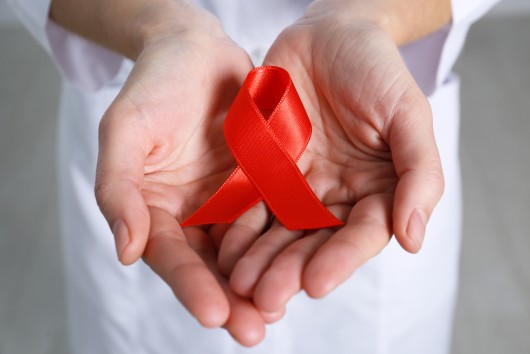Ending HIV in Europe - Can the EU lead the global path forward to 2030?
01-10-2024

WATCH THE RECORDING HERE
In recent decades, significant progress has been made in the fight against the Human Immunodeficiency Virus (HIV). Europe has committed to end the HIV epidemic by 2030 and EU-wide progress has been made towards the UNAIDS goals.
However, many countries – including in Europe – are not on track to meet the global goals. HIV continues to pose a public health threat in the EU/EEA countries where an estimated 765 000 people are living with the virus and approximately 23 000 new cases are diagnosed every year. Advocates have been calling for stronger actions at EU and national levels to end the HIV epidemic in Europe.
A new report published by BCG (commissioned by Gilead Sciences), “Going the extra mile to end the HIV epidemic”, lays out the need for sustained funding and investment in HIV prevention, innovation, and other policy efforts such as adopting a range of testing options. The report also highlights the importance of coordination and commitment from a variety of stakeholders, including governments, public health leaders, healthcare providers, and community-led organisations and people living with HIV.
Significant progress has been made in the fight to end the HIV epidemic, but we are currently at risk of falling short of the 2030 targets. An extra effort is required to achieve the global goal. Just 5 years out from 2030, join this Euractiv Hybrid Conference to discuss the actions needed to end the HIV epidemic in the EU. Questions to be addressed include:
- Considering the UN SDGs, what steps can the EU take to accelerate its efforts to end the HIV epidemic in Europe by 2030?
- To what extent can the EU support its Member States in their fight against HIV? How can the Commission coordinate initiatives at EU and national levels?
- What role do biomedical innovations play in ending HIV in Europe and worldwide? How can they be accelerated?
- How can the EU and its Member States contribute to sustained funding and guarantee access to innovative treatments?
- What are the best practices for HIV testing?
- What is the role of the new EU Institutions in this important fight and to maintain the political momentum for action?
Supported by:

Location
Online (live-streamed from the European Parliament VoxBox)
Panellists
Marc Angel MEP
Quaestor, Member of the Informal Working Group on HIV, UNAIDS Red Ribbon Leader, European Parliament
Nicolás González Casares MEP
Member, SANT Committee, European Parliament
Julia del Amo
Director, Division for the control of HIV, STI, Viral Hepatitis and Tuberculosis, General Directorate of Public Health, Spanish Ministry of Health
Nicoletta Policek
Executive Director, European AIDS Treatment Group
Prof. Dr. Christoph D. Spinner, MD MBA
Adjunct teaching professor, Chief Operations Officer (COO) hospital operations, Chief Medical Information Officer (CMIO), Consultant Physician Infectious Diseases and Medical Direction,
TUM University Hospital, University hospital rechts der Isar, and Technical University of Munich
Mercy Shibemba MBE
Co-author of the ‘The Going the Extra Mile to End the HIV Epidemic Report’ prepared and researched by Boston Consulting Group and commissioned by Gilead Sciences
Neil Mulcock
Vice President International Government Affairs, Gilead
Moderator
Jennifer Baker
Euractiv
Schedule
10:30 - 10:35 Welcome
10:35 - 11:00 Panellist statements
11:00 - 11:50 Discussion and Q&A
11:50 - 11:55 Closing statements
Contact
Juliette Burton
juliette.burton@euractiv.com




